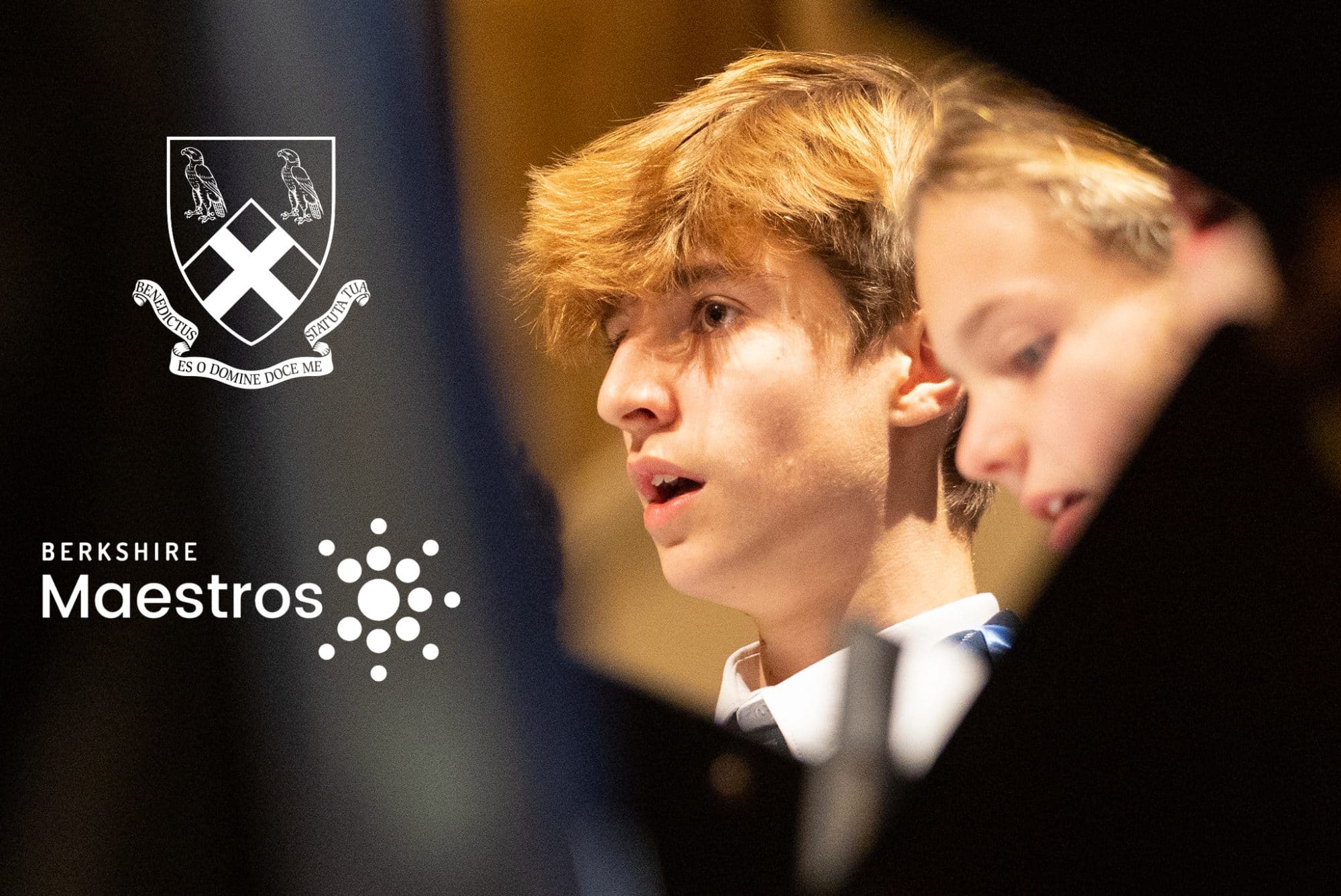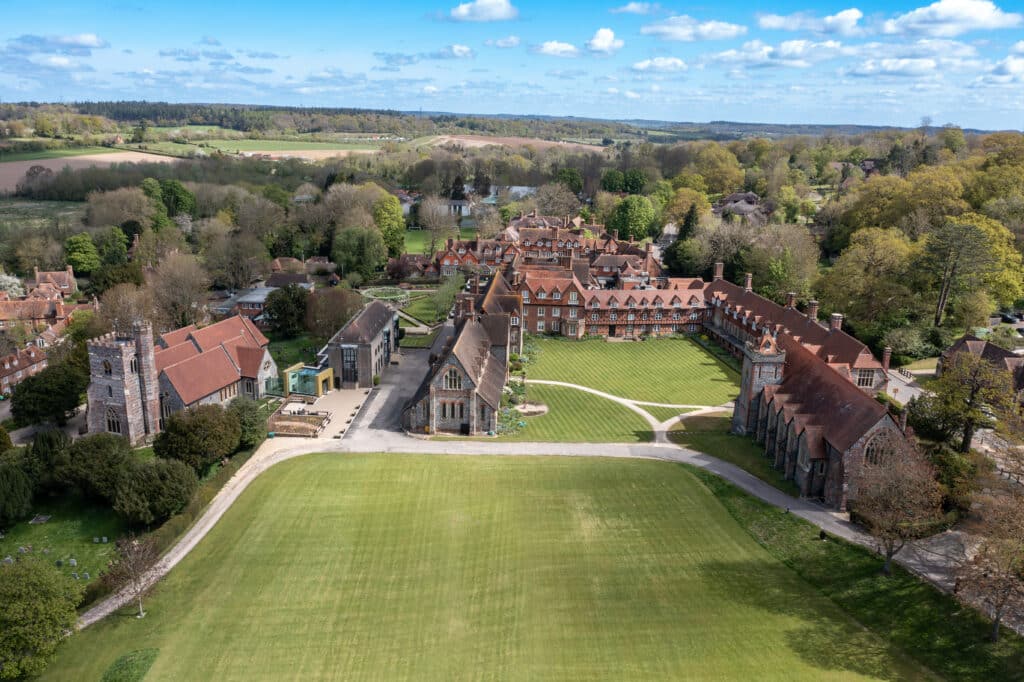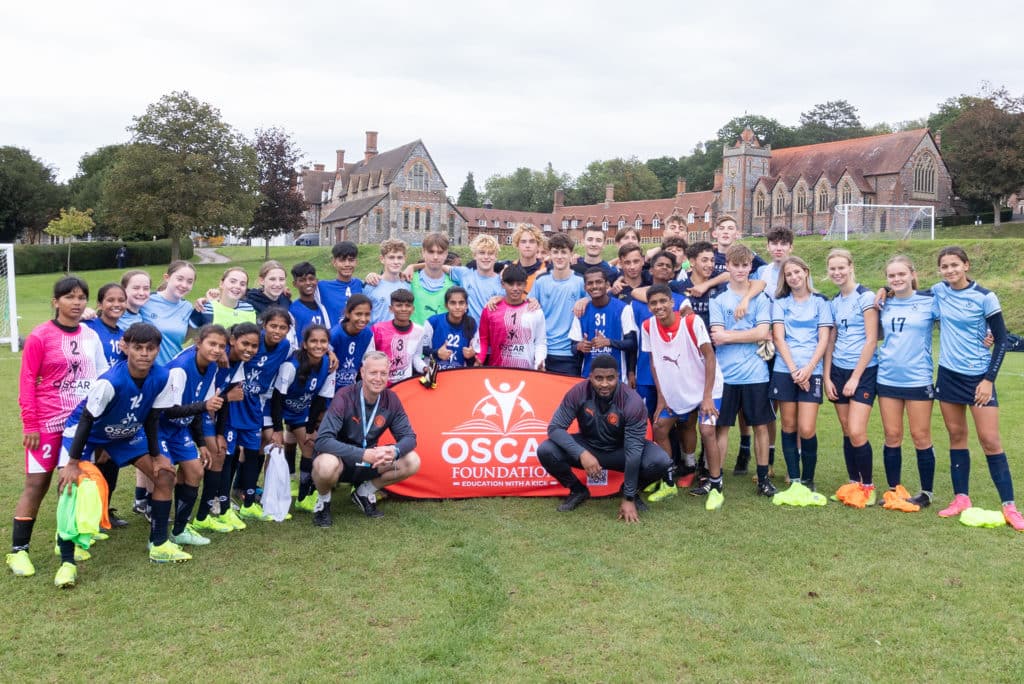
Stronger when we work together.
For those of us who eagerly thumbed through the newly published, and significantly refreshed, National Plan for Music Education (see link below) when it was released in June 2022, it was clear that developing mutually beneficial partnerships between different organisations was a priority for the future development of music education. A number of issues have had a detrimental impact nationally on music education in and out of the classroom over the last decade and headlines are rarely positive. As the sector becomes increasingly stretched, the premise of the plan’s second goal (p. 49) is that we are stronger when we work together to tackle this decline, acting with all children and young peoples’ needs and interests at heart.
I am the Director of Music and acting Head of Partnerships here at Bradfield College. I have experienced first-hand the positive impact of music partnerships in education; opportunities that are transformational for all the children. As such, I don’t need to be persuaded by the benefits of making this a priority within our department and I wholeheartedly support the NPME’s agenda for our sector.
Independent schools are also encouraged to contribute to this wide ecology of music in communities, and become active partners in Music Hubs, in keeping with the department’s joint understanding with the Independent Schools Council. The joint understanding sets out how the independent sector will work in partnership with state schools to deliver mutually beneficial outcomes. This could include, for example:
- the sharing of best practice amongst music educators;
- holding mixed music classes;
- sharing facilities such as practice spaces;
- opportunities for pupil-to-pupil performances;
- access to choirs and ensembles.
Reading the above on p. 67 felt like strong affirmation of our recent efforts to pursue some joint ventures with our local county music hub Berkshire Music Trust.
While I have been covering the Head of Partnerships role, I have spent time outside of the Music Department collaborating on the College’s wider partnership programme. I have picked up what you could call a loose ‘success framework’ from Christina Astin’s partnership blogs and breakfast meetings which have helped me frame project development. In her blog ‘How can we sustain school partnerships?’ she identifies four features from the 2019 DfE grant funding window for ISSP which are likely to make partnerships “effective and more likely to thrive in the long term.”
Impactful
Making a quantifiable difference.
Sustainable
Long-lasting, able to outlast any one staff member.
Mutually beneficial
Measurable benefit to all parties.
Addressing disadvantage
The project was meeting an identified need.
I knew from my own experience and from talking with colleagues that there can be defensiveness around independent schools working with music hubs: a worry about sustainability, concerns about toes being trodden on and even suspicion around motives. However, I have seen these partnerships flourish, and we were long overdue the downbeat on our own significant music partnership journey.
The experience of competing against pupils from beyond Bradfield has a significant educational (and life) value
How did we get started?
Conversations with Berkshire Music Trust have been positive throughout. What our ‘identified needs’ might be were considered early in our talks without suspicion or mistrust. Collaborations began small with discussions of how specific instrumental faculties might work together to make a quantifiable difference to pupils from both institutions.
We played host to a number of BMT events, them benefitting from the use of our facilities, whilst our pupils benefitted through participation. This included a BMT piano masterclass, at which a number of our pupils performed, and we hosted the semi-finals of their Young Musician of the Year competition. A number of Bradfield pupils made it through to the semi-finals and the experience of competing against pupils from beyond Bradfield has a significant educational (and life) value. I joined the adjudicating panel for the singing competition, sat alongside two choral and vocal experts from the Trust, and together we began to hatch a plan for a joint concert between Berkshire Youth Choir and our Chapel Choir. Now that rehearsals are underway, I have been reflecting on the process so far and our first dalliance into this sort of project.
Where’s the mutual benefit?
The headline mutual benefit is the opportunity for our pupils to work alongside other young singers from the local region and with other inspirational choral directors. Beyond this, I have long had a desire that we enable our pupils to explore larger scale choral works. We aren’t a school which has access to its own choral society and the size of our Chapel Choir (roughly 45 pupils) is restrictive. I also thought that exploring this repertoire in an event in the latter part of the spring term, or early summer term, would encourage our choir to continue to develop beyond the excitement and business of the Christmas Carol season. I have found that it is so important to connect up partnership opportunities to a development plan. This helps sustain that all important ‘buy-in’ and helps ensure that the benefits go beyond the tokenistic. I wouldn’t want to second-guess the benefits that Berkshire Music Trust foresaw from the project, but they were significant enough to pursue the venture which has now had its first full rehearsal.
The challenges of partnership
The key to overcoming the challenges so far has been the enthusiasm of the staff involved – success relies on this from both sides. The challenges have largely centred around the joining together of two organisations who, despite working towards similar goals in music education, work in very different circumstances. The language and culture that we take for granted as being ‘normal’ in our organisations is being put to the test, and taking us on a steep learning curve as we get to know each other. Rehearsal dates and venues had to be agreed – all relatively painless. A Saturday evening concert was agreed – normal for BMT, but unusual for us (our concerts take place during the week, avoiding clashes with Saturday sports fixtures). Repertoire was agreed – never a straightforward process when different institutions have the needs or limitations of their own ensemble at the forefront of their minds. For the overall management of the project, a division of labour was agreed which will no doubt require significant cross-institution communication over the coming months. Bradfield are taking on the booking and liaising with the venue, as well as ticket sales. BMT will market the event, including publicity. I am all too aware of the significant amount of effort involved in putting a concert together within a school, so I have no doubt that the collaborative element will throw challenges our way.
Partnership is key to enabling all children to benefit from the transformative nature of music making.
Next steps
We held our first joint rehearsal at the beginning of January and, as I have come to expect, all anxiety surrounding the organisation of the project swiftly evaporated when we heard the young people working together. To my delight, BMT have rallied two additional senior state schools which meant the room was full of young singers, and we made fantastic headway on Rutter’s Gloria and Handel’s Zadok the Priest. There are two further joint rehearsals scheduled, as well as the rehearsal on performance day, meaning that the bulk of the learning will take place in our individual choirs. The concert is being held on Saturday 13 May at Reading Town Hall and tickets will be available to the public soon. I hope that this will be our own regional contribution to the growing number of excellent music partnership opportunities. We can look to any number of successful projects such as Gabrieli Roar, Sounding Out at The King’s School Canterbury and Music Flood Week led by Radley College, for inspiration and affirmation. You don’t need to look far to see examples where partnership is key to enabling all children to benefit from the transformative nature of music making.
If you have any questions about our partnerships programme or, if you have examples of successful music partnerships, I would love to hear from you. You can contact me via email



